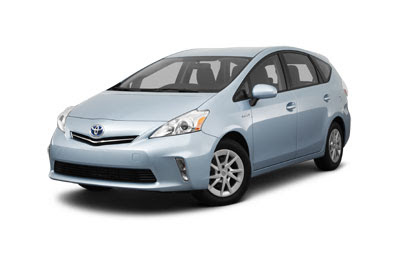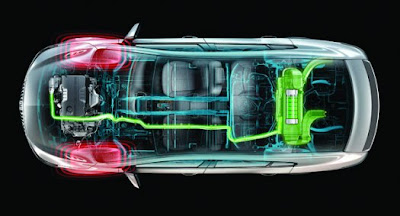With the prices of gasoline constantly rising, we could all use a few tips on how we could make our driving more fuel - efficient and save some money in the process. The good news is - it is not as hard as it seems. All it takes is some good car maintenance practices and a few modifications to our driving style.
The key to fuel-efficient driving is in your hands.
Here are a few tips you can start incorporating today and notice the difference in your gas bills.
Have your engine checked
We have talked before about the importance of regular
car servicing and all it's benefits, but not the monetary benefits. Auto checks are very important since they can discover a flaw in the components of the engine before it becomes a major problem and requires (expensive)
engine repairs. But did you know that neglecting servicing your engine regularly can increase fuel consumption of your vehicle by as much as 50%? Just changing the dirty spark plugs can lower fuel consumption by as much as 5%!
Check the air-filter
The air filters are the ones that keep dirt from damaging your engine. Over time they tend to clog up and this lowers your engine's fuel efficiency. Having them replaced can lower fuel consumption by as much as 10% and keep your engine protected at the same time.
When possible drive into higher gear
Driving into lower gear makes your engine consume more fuel than needed. Anytime the situation allows it get your car into higher gear. When you drive in the right gear, the engine more efficiently and consumes less fuel. Once the car gathers momentum, ease up on the acceleration pedal.
Use air conditioning sparingly
Using the air conditioning is sometimes inevitable, especially in hot sunny days, but use of air conditioning also means higher fuel consumption. When AC is on fuel consumption increases by as much as 8% especially in older vehicles. When it's not too hot, use the ventilation system instead or roll down the car windows if you're not driving too fast. Rolling down the windows is not advisable at higher speeds.
Avoid fast driving
The higher your driving speed, the higher the wind resistance against your vehicle, hence more fuel consumed by the engine. Driving 110 km/h means 30% more consumption than driving 80 km/h. The statistics are clear - keep your foot away from the gas pedal whenever possible.
Maintain tyre pressure
When the tire pressure is down by just 0.1 psi, fuel consumption increases 3%. Inflate your tires at least once a week. Make it a habit - for example, when you fill your gas tank.
Avoid keeping your car in idle mode
If you are stuck in a traffic jam or you're waiting for someone to run a small errand, do not keep your car engine running unnecessarily.
Use appropriate oil
Check your manufacturer's manual to find out the right oil viscosity for your engine. It is advisable to have it changed every 5000-8000 km.
Avoid carrying excessive weight
Every additional 45 kg of weight carried increases fuel consumption 1-2%. Avoid carrying around in your car things you don't need that only add weight to your vehicle.
Close the windows
The wind blowing trough the open windows slows down your car. To make up for it you will probably hit the gas pedal without even realizing it. Instead of opening the windows try using the car's ventilation system.
Smart driving and regular preventive
car service will keep your fuel cost down and save you from expensive car repairs. Don't forget to drive safely.







